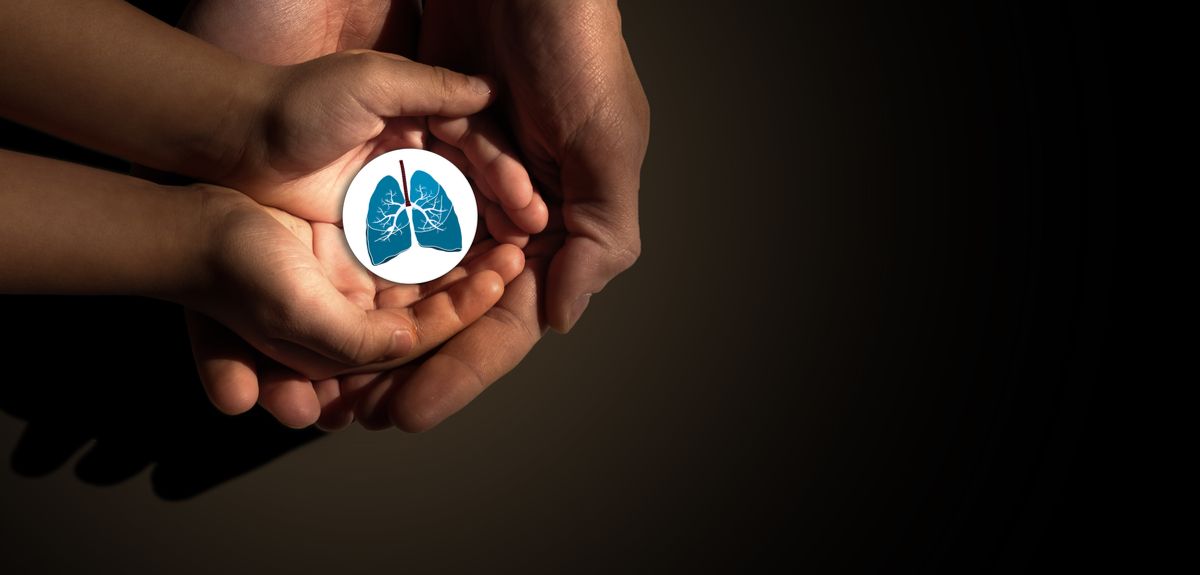
Image credit: Shutterstock
World TB Day: Finding new ways to test children for tuberculosis
By Dr Nisreen Khambati, Oxford Vaccine Group
Every year, more than one million children fall ill with tuberculosis (TB) globally, and about a quarter die from this potentially preventable and curable disease. According to the World Health Organization, TB is one of the ten most frequent causes of death among children under five years of age.
The main challenge remains the correct and timely diagnosis of TB, especially in resource-constrained settings. TB is more difficult to diagnose in children compared to adults because there are far fewer TB bacteria present in children than in adults. This means that in many children the diagnosis of TB is missed.
To test young children for TB, we currently need to collect mucus from the lungs (sputum) or liquid contents of the stomach which are difficult to obtain from children and must be collected in a hospital. Diagnosis of TB in children with HIV infection is even more difficult and they are more likely to develop TB compared to children not infected with HIV. Despite advances in TB diagnostic tests in the last decade, these have not impacted significantly on paediatric TB. New and different ways to diagnosis TB in children are urgently needed, especially for those infected with or exposed to HIV.
An international collaboration of researchers is now conducting an exciting large diagnostic study in Uganda to fill this research gap. The NOD for TB study (Novel and Optimized Diagnostics in Paediatric Tuberculosis) aims to evaluate and develop new tests for TB among children under five years of age. Uniquely, the study aims to detect the TB bacteria in body fluids such as blood, urine, stool and saliva that are easier to collect from children than sputum or stomach contents.
The study will also evaluate tests looking at the body’s immune response to the disease that have not been studied in large populations of young children before. NOD for TB is currently being set up in Kampala, Uganda and will start recruiting children with suspected TB in April 2021 for the next five years. Children who are HIV negative and HIV positive will both be recruited.
'We are excited to launch this important study which will evaluate a broad range of innovative new approaches and tests to diagnose TB in children under 5,' says Dr Rinn Song, clinical scientist at the Oxford Vaccine Group, Department of Paediatrics, and study lead for Oxford. 'Our hope is that findings of this study will contribute to address the urgent need to reduce the high number of preventable and tragic deaths of infants and young children due to TB in the world.'
Paediatric TB is underdiagnosed and has a high mortality rate. Gains in the global fight against TB have been threatened due to the ongoing COVID-19 pandemic. Promising and accessible new tests are urgently required and need to be evaluated in children less than five years of age, who are most vulnerable and difficult to diagnose. The NOD for TB study in Uganda aims to achieve this critical challenge. The clock is ticking.
NOD for TB is funded by the U.S. National Institute of Health and led by Professor Jerrold Ellner, Professor David Alland and Professor Padmini Salgame of Rutgers New Jersey Medical School and Professor Moses Joloba and Professor Adeodata Kekitiinwa in Kampala. This consortium is comprised of an international group of clinical, translational and laboratory-based scientists, including Rutgers University, Baylor Children’s Clinical Center of Excellence in Kampala, Makerere University College of Health Sciences, the Foundation for Innovative New Diagnostics in Geneva, Frontiers Science, the US CDC, KEMRI, McGill University, the Medical University of South Carolina and Oxford University. The local Ugandan team at Baylor Children’s Clinical Center of Excellence where the study will start is led by Dr Grace Kisitu and Dr Emmanuel Nashinghe.